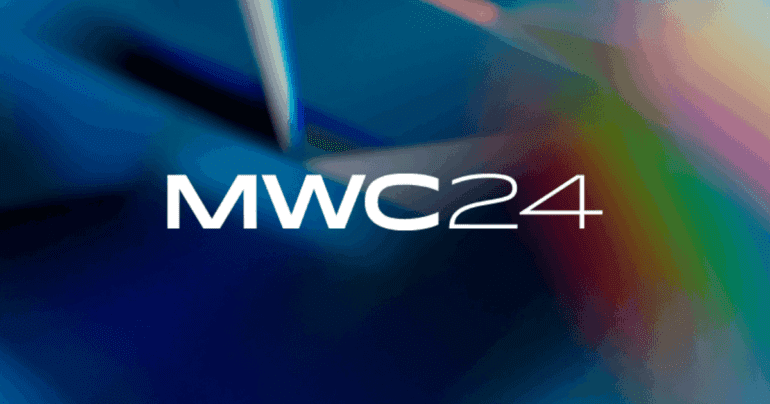TL;DR:
- Mobile World Congress (MWC) in Barcelona highlights the pivotal role of artificial intelligence (AI) in driving sales and enhancing user experiences.
- AI integration permeates the wireless sector, with companies adopting generative AI and machine learning tools to revolutionize smartphone features and network systems.
- Major players like Deutsche Telekom, Google, and Samsung unveil AI-powered innovations, including concept AI phones and smartphones with advanced AI features.
- Discussions at MWC focus on AI’s impact on connectivity, workforce dynamics, and the convergence of communication and computation in mobile networks.
- The market witnesses a shift towards democratizing AI to ensure widespread benefits across the telecom industry and global economy.
Main AI News:
The anticipation surrounding the commencement of the Mobile World Congress (MWC) in Barcelona, Spain, is palpable, as the industry gears up to embrace the transformative power of artificial intelligence (AI). With an estimated 95,000 attendees and 2,400 exhibitors, this event promises to be a hub of innovation and exploration until Thursday (Feb. 29), as companies pivot towards AI to revolutionize sales strategies and captivate users.
AI’s pervasive influence permeates every facet of the wireless sector, as companies race to integrate generative AI and other machine learning tools into their operations. From enhancing smartphone features to optimizing network systems, AI is driving unprecedented advancements and reshaping the telecommunications landscape.
According to Alex Sinclair, the Chief Technology Officer of GSMA, the association spearheading the MWC show, AI represents a monumental opportunity for the telecoms industry and the global economy at large. Sinclair emphasized, “Artificial Intelligence provides the telecoms industry, and the societies it serves, with huge opportunities to launch new services, improve connectivity and customer experience.”
The democratization of AI stands as a paramount objective, ensuring that its benefits are accessible to all sectors of the connectivity industry and their clientele worldwide. As Sinclair aptly puts it, “It’s critical that AI is democratized to ensure that all parts of the connectivity industry and their customers, wherever they are in the world, benefit.”
AI-Powered Innovations Steal the Spotlight
At the forefront of AI innovation, Deutsche Telekom is poised to unveil a groundbreaking AI phone concept designed to streamline smartphone functionalities through an intuitive AI assistant. By leveraging Brain.ai’s generative AI interface, this device transcends conventional app-centric usage, operating more akin to a personalized concierge service, intuitively understanding and executing user commands.
Major players like Google and Samsung are also set to dazzle audiences with their latest AI-infused smartphones, featuring cutting-edge capabilities such as advanced photo editing and streamlined internet searches, poised to be major crowd-pleasers.
Meanwhile, smaller contenders like Honor from China are not to be overlooked, as they introduce their newest offerings equipped with AI-powered features. Honor’s latest flagship smartphone boasts an AI-powered camera with motion-sensing technology, ensuring users capture every moment flawlessly.
Lenovo is set to showcase its array of AI gadgets and infrastructure tools, including AI-powered PCs and edge computing devices, highlighting the company’s commitment to driving AI innovation across diverse technological fronts.
AI: Shaping the Future of Connectivity
Beyond consumer tech, MWC attendees will delve into the transformative potential of AI, the Internet of Things (IoT), and quantum computing in enhancing connectivity for business and industrial applications. With sessions like “Is 2024 the year of the AI-centric telco?” and “Harnessing Gen AI at telco scale,” the discourse surrounding AI’s pivotal role in shaping the telecom landscape takes center stage.
Discussions such as “Developing Gen AI that cares” underscore the profound impact of AI on the industry’s workforce dynamics. While AI promises increased efficiency and optimization, it also prompts critical reflections on its implications for job roles and organizational structures within the telecom sector.
Intriguing sessions like “Revolutionizing Connectivity: Navigating the Future with AI-powered Networks” delve into the convergence of communication and computation, as AI-powered mobile networks pave the way for seamless integration of digital and physical realms. Expert insights from industry stalwarts at AT&T, Nokia, Nvidia, and Ericsson promise to enrich discussions on the future trajectory of AI-driven connectivity solutions.
While Google unveils its latest AI breakthroughs, with a particular focus on enhancing the Android mobile operating system, rumors swirl about Apple’s foray into integrating more AI applications into its devices, ensuring that the transformative potential of AI remains a focal point of industry discourse, even in the absence of certain key players.
Conclusion:
The overwhelming presence of artificial intelligence at Mobile World Congress signifies a paradigm shift in the telecom industry, with AI emerging as a catalyst for innovation, efficiency, and enhanced user experiences. Companies that embrace AI-driven solutions stand to gain a competitive edge, while the democratization of AI underscores a commitment to inclusivity and accessibility, shaping the future landscape of connectivity and technological advancement.

